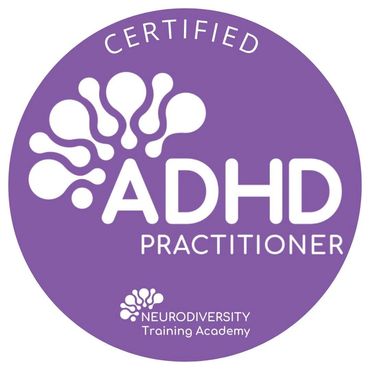Unlock Your ADHD Potential

About ADHD
ADHD is a complex neurodevelopmental disorder that significantly impacts many individuals. It's crucial to understand that:
- It's a Brain-Based Condition: ADHD isn't about laziness or lack of willpower. It stems from differences in brain structure and function, particularly in areas related to attention, focus, and impulse control.
- Neurotransmitter Imbalances: Dopamine, norepinephrine, and serotonin play vital roles in regulating attention, motivation, and mood. Imbalances in these neurotransmitters are strongly linked to ADHD symptoms.
- Genetic Predisposition: ADHD often runs in families, suggesting a genetic component. However, it's important to remember that genetics are just one piece of the puzzle.
- Environmental Factors Matter: While genetics play a role, environmental factors like stress, trauma, and early childhood experiences can also influence ADHD symptoms.
If you or someone you know is struggling with ADHD, it's essential to seek professional help. There are effective treatment options available, including:
- Therapy: Talking therapies, hypnotherapy and other therapeutic approaches can help individuals develop coping strategies and improve their quality of life.
- Medication: In some cases, medication can help regulate neurotransmitters and alleviate ADHD symptoms.
- Lifestyle Changes: Healthy habits like regular exercise, a balanced diet, and sufficient sleep can also make a significant difference.
Remember, you're not alone. There are many resources and support systems available for individuals with ADHD and their families.
I am not able to formally diagnose ADHD, this is a matter for the Professionals. You will need to seek advice, referral via the School (child) or GP (adult). I can help you achieve this in the first instance and then support you on diagnosis.
Many adult ADHD'ers self diagnose and never have a formal diagnosis. This is absolutely fine, I am here to help you achieve a more fulfilled lifestyle and work with symptoms that you have that affect every day life.
Transform Your Life

Working with ADHD Clients: My Approach
If you live with ADHD, you probably know what it’s like to have a mind that’s always on the go — full of ideas, energy, and creativity — but sometimes a little hard to steer. My role is to help you find ways to make life feel calmer, more organised, and more in your control, without losing the spark that makes you *you*.
**Finding What Works for You**
Together we’ll explore practical tools for structuring your day in ways that actually fit your natural rhythm — things like breaking tasks into smaller steps, using visual or digital reminders, and building flexible routines that support your focus and flow.
**Managing Time and Overwhelm**
We’ll look at ways to make time feel more visible — learning how to set limits, take breaks, and work in manageable bursts. The goal isn’t perfection, it’s progress — finding balance and confidence in how you use your time and energy.
**Calming the Mind**
Hypnotherapy can be a powerful way to quiet the mental noise and create more inner stillness. These sessions can help you slow down racing thoughts, reduce overwhelm, and reconnect with a sense of calm focus.
**Building Confidence and Self-Compassion**
ADHD can often come with years of self-criticism. Part of our work is helping you understand your brain, recognise your strengths, and develop self-kindness — so you can work *with* your mind, not against it.

Cookie Policy
This website uses cookies. By continuing to use this site, you accept our use of cookies. Privacy Policy

